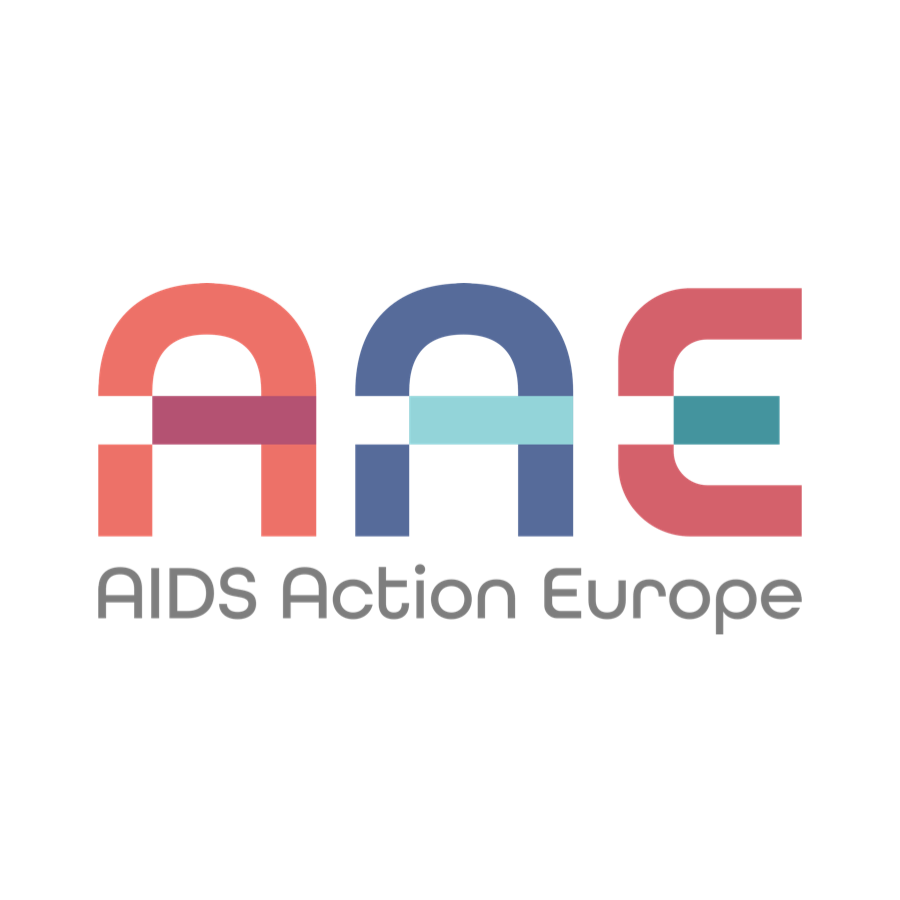Clearinghouse
Filter
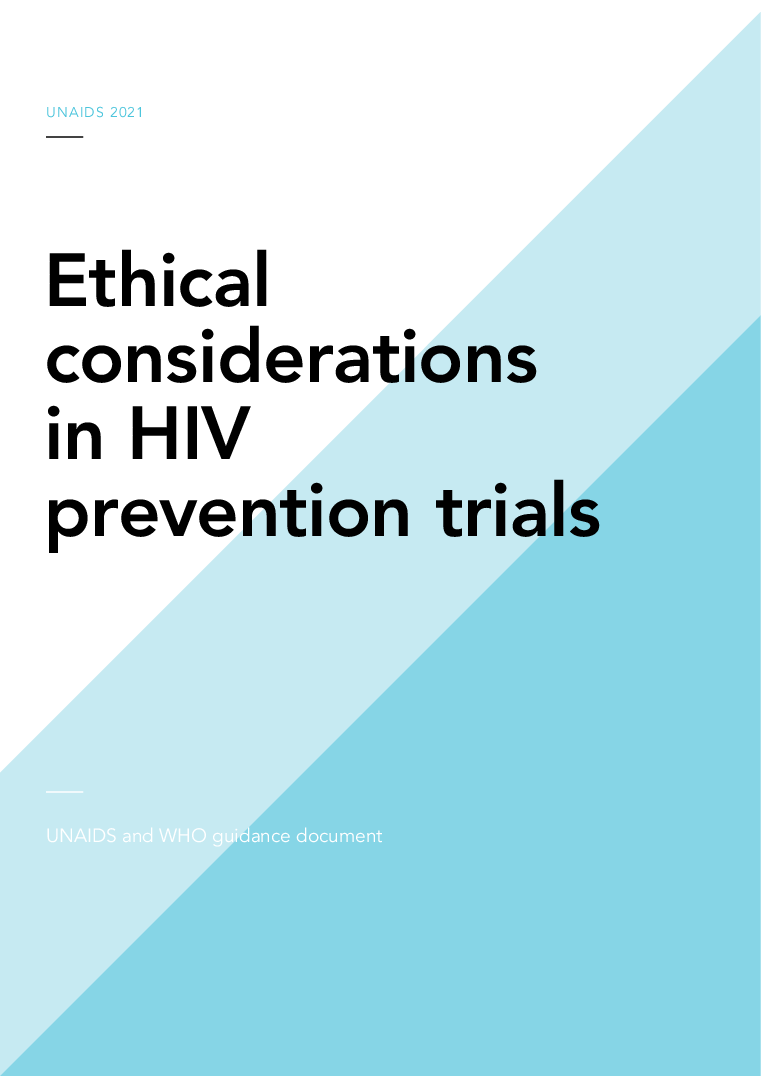
Ethical considerations in HIV prevention trials
UNAIDS and the World Health Organization have published this updated guidance on ethical considerations in HIV prevention trials. The new guidance is the result of a year-long process that saw more than 80 experts and members of the public give inputs and is published 21 years after the first edition appeared.
The HIV prevention goal set in the United Nations 2016 Political Declaration on Ending…
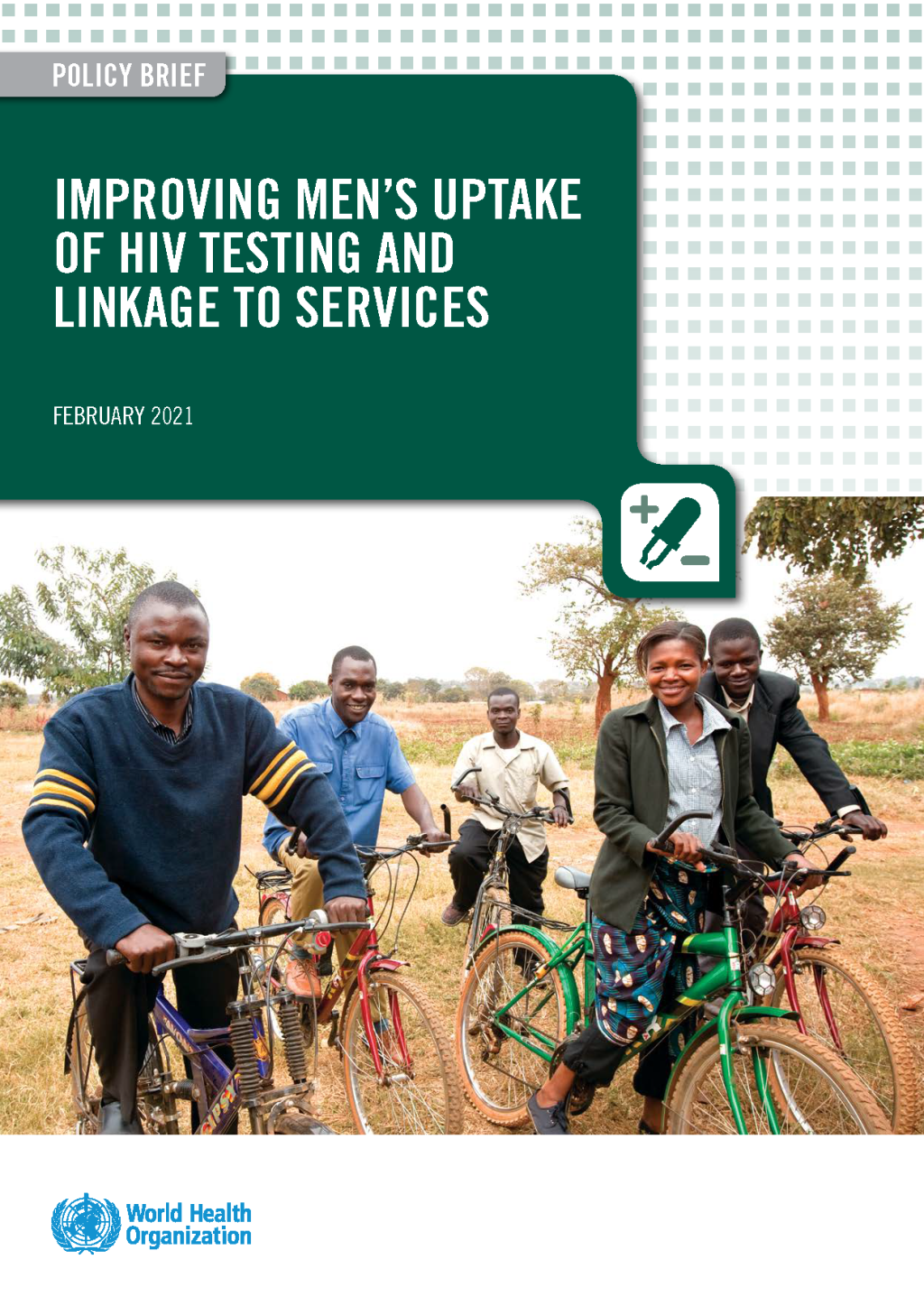
Improving men’s uptake of HIV testing and linkage to services
In 2019 an estimated 7.2 million people, 19% of all those with HIV, were undiagnosed. Men in high HIV burden settings and men from key populations are consistently less likely to know their HIV status than women. WHO recommends a strategic mix of differentiated HIV testing services (HTS) approaches to reach men and link them to appropriate prevention and treatment services.
This policy brief…
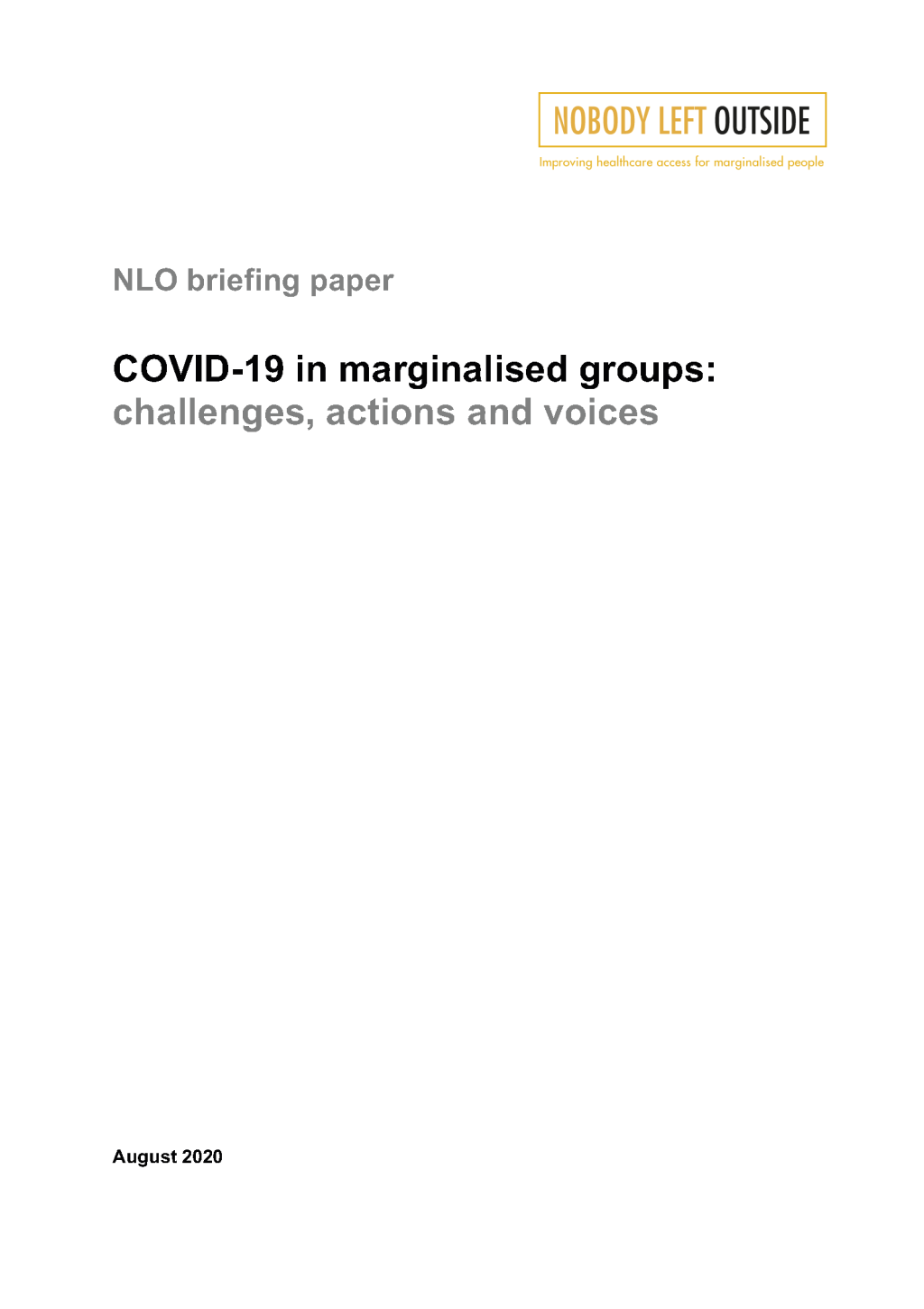
COVID-19 in marginalised groups: challenges, actions and voices
The Nobody Left Outside coalition has developed this briefing paper for the WHO European Office for Investment for Health and Development to:
Explain to policymakers the particular challenges and impacts of the COVID-19 pandemic and government responses among marginalised groups in Europe. This is done via a unique exercise mapping the inter-related impacts associated with homelessness, sex work…
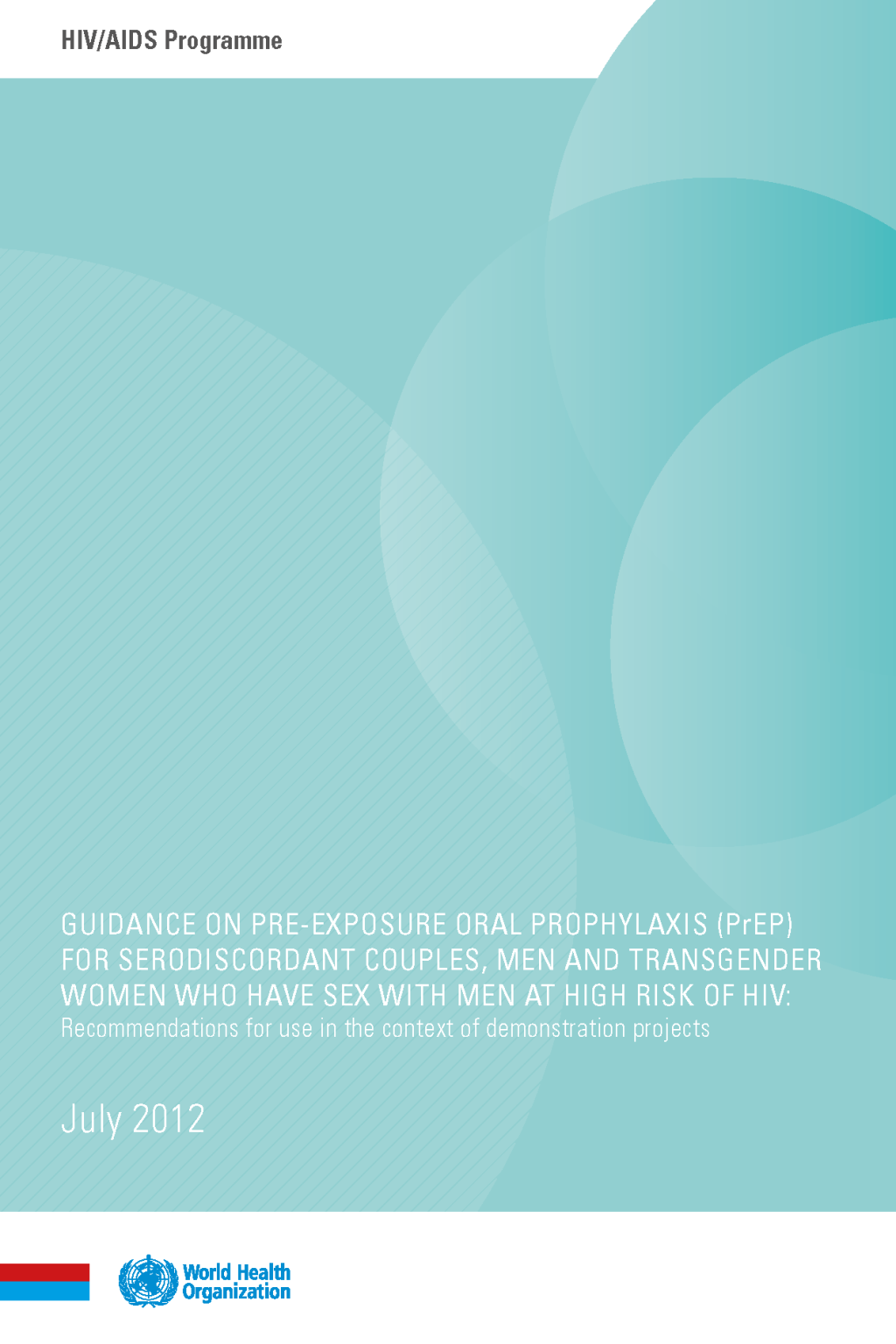
Guidance on oral pre-exposure prophylaxis (PrEP) for serodiscordant couples, men and transgender women who have sex with men at high risk of HIV
These recommendations have been developed specifically to address the daily use of antiretrovirals in HIV-uninfected people to block the acquisition of HIV infection. This prevention approach is known as pre-exposure prophylaxis.
At this stage evidence is available from studies with two groups: men and transgender women who have sex with men; and serodiscordant heterosexual couples. In parallel,…
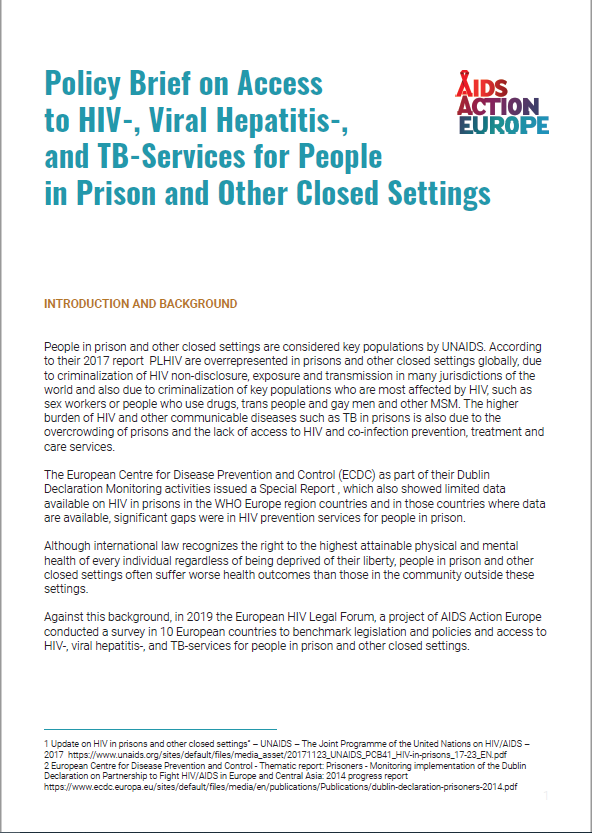
Policy Brief on Access to HIV-, Viral Hepatitis-, and TB-Services for People in Prison and Other Closed Settings
In 2019 the European HIV Legal Forum (EHLF) produced a comparative legal report on access to HIV-, viral hepatitis-, and TB-services for people in prison and other closed settings, based on a legal survey launched in the 10 countries: Denmark, Finland, France, Germany, Greece, Italy, North Macedonia, Spain, Ukraine, and the United Kingdom.
Based on and derived from the main findings of the…
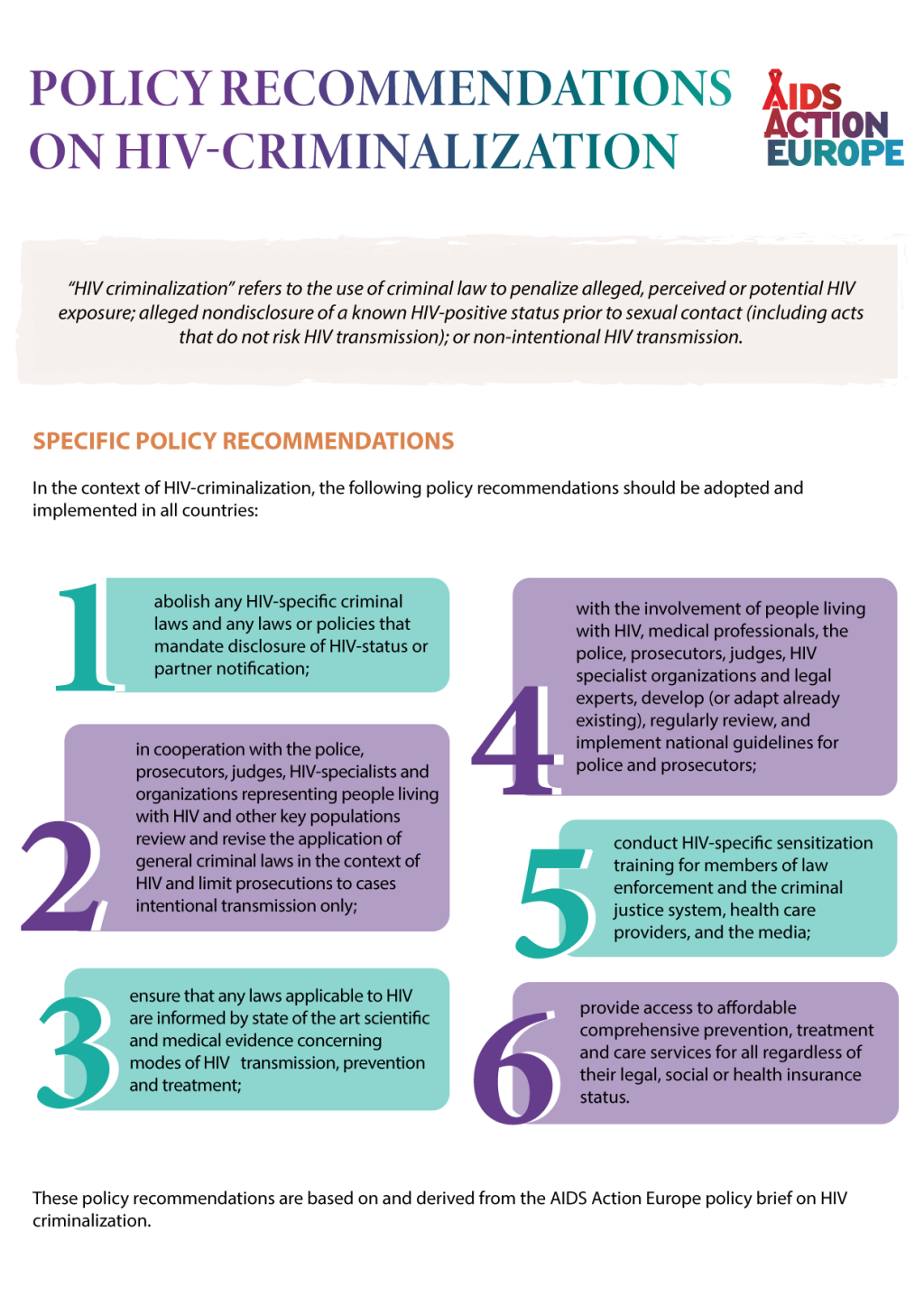
Policy Recommendations on HIV-Criminalization
“HIV criminalization” refers to the use of criminal law to penalize alleged, perceived or potential HIV exposure; alleged nondisclosure of a known HIV-positive status prior to sexual contact (including acts that do not risk HIV transmission); or non-intentional HIV transmission.
These policy recommendations are based on and derived from the AIDS Action Europe policy brief on HIV criminalization.
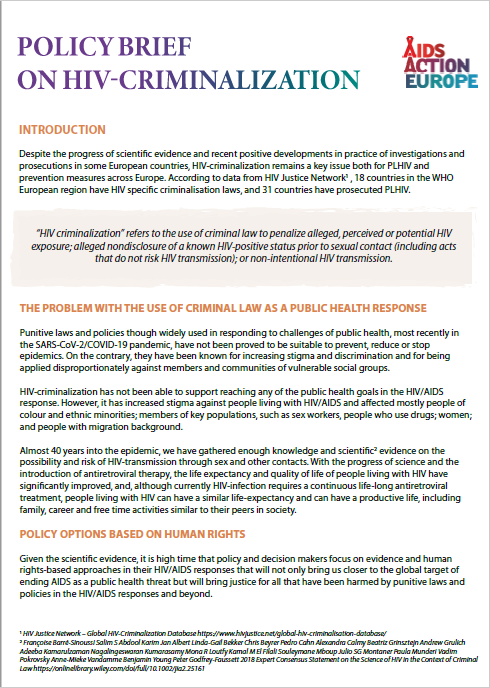
Policy Brief on HIV Criminalization
Despite the progress of scientic evidence and recent positive developments in practice of investigations and prosecutions in some European countries, HIV-criminalization remains a key issue both for PLHIV and prevention measures across Europe. According to data from HIV Justice Network , 18 countries in the WHO European region have HIV specic criminalisation laws, and 31 countries have prosecuted…
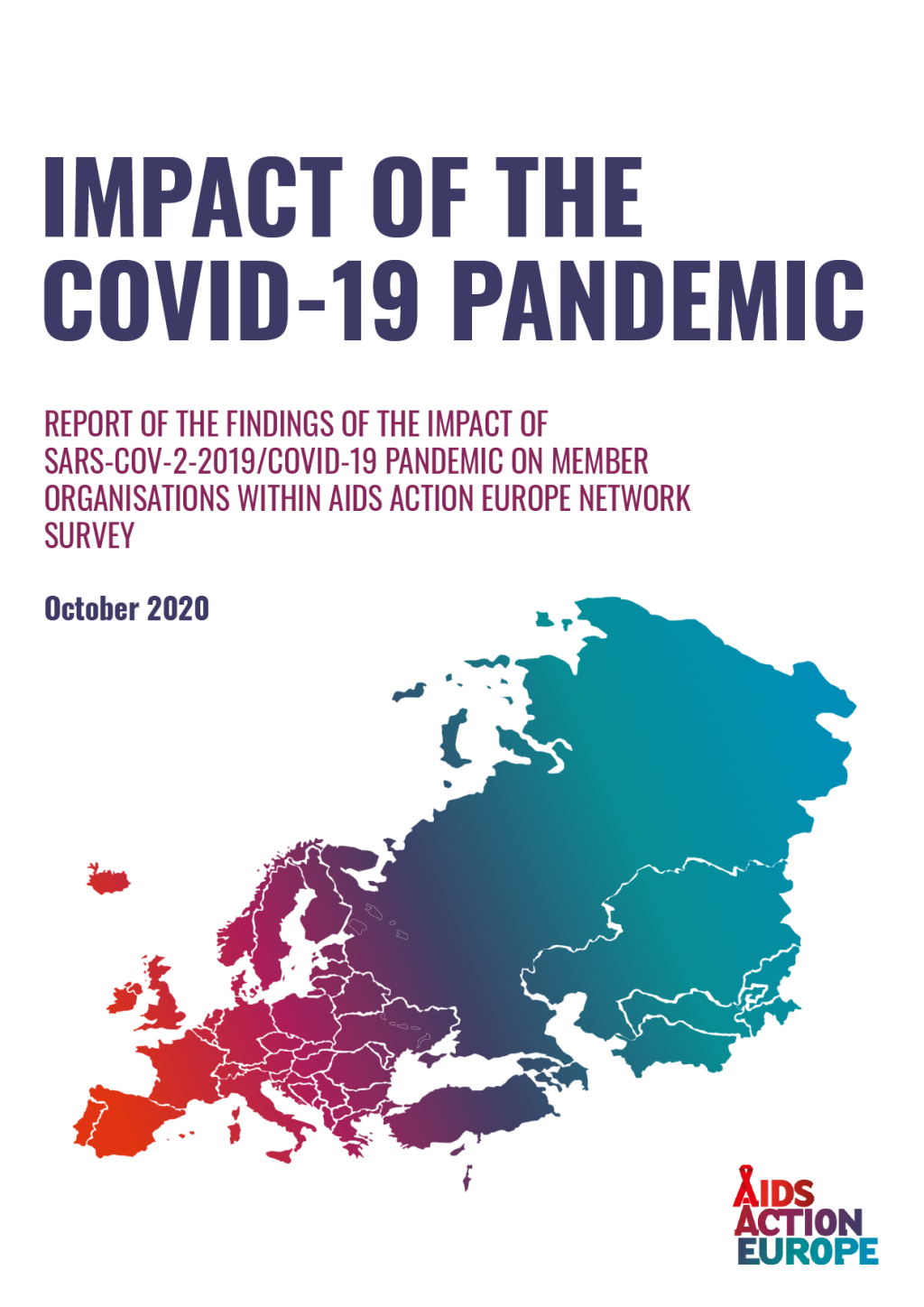
Impact of the COVID-19 Pandemic. Report
This report shows findings of the survey that took place in June 2020. AAE conducted a survey among our network members and partners to learn how the COVID-19 Pandemic has impacted the services and finances of our member and partner organisations.
This survey shows that services with face-to-face client contact, who are most vulnerable to HIV/AIDS, TB, viral Hepatitis and STIs, were most harmed…
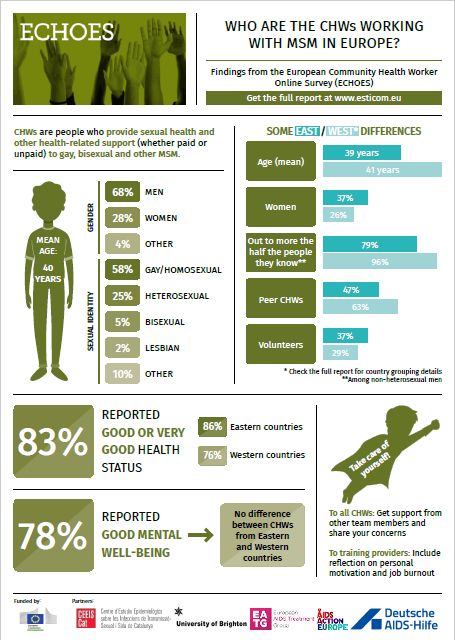
WHO ARE THE CHWs WORKING WITH MSM IN EUROPE?- infographic
European Community health worker online survey (ECHOES) is the first international and multi-language survey among
community health workers (CHWs) working to improve the sexual health of gay, bisexual and other MSM in Europe.
This infographic provides an overview of who community health workers are and what they do. It is avaialble in English, German, French, Hungarian, Spanish and Russian.
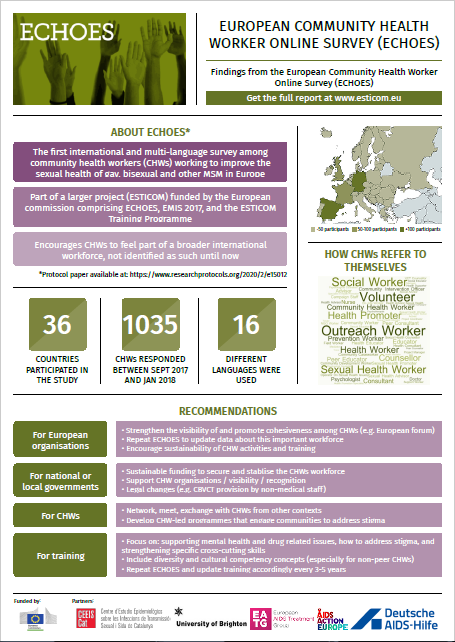
About ECHOES - infographic
European Community health worker online survey (ECHOES) is the first international and multi-language survey among
community health workers (CHWs) working to improve the sexual health of gay, bisexual and other MSM in Europe. This infographics provides an overview of the survey as well as recommendations developed based on its fidings. It is avaialble in English, German, French, Hungarian,…
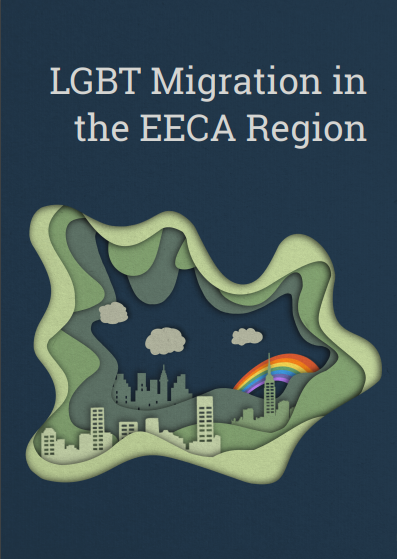
LGBT Migration in the EECA Region
This guideline "LGBT Migration in the EECA Region" is focusing on different aspects connected to migration of LGBT populations within the region. It talks about international treaties on migration, connection to HIV and its prevention as well as health and safety issues for key populations. It is avaialble in 3 languages: English, Russian and German.
It was prepared as part of the project "…
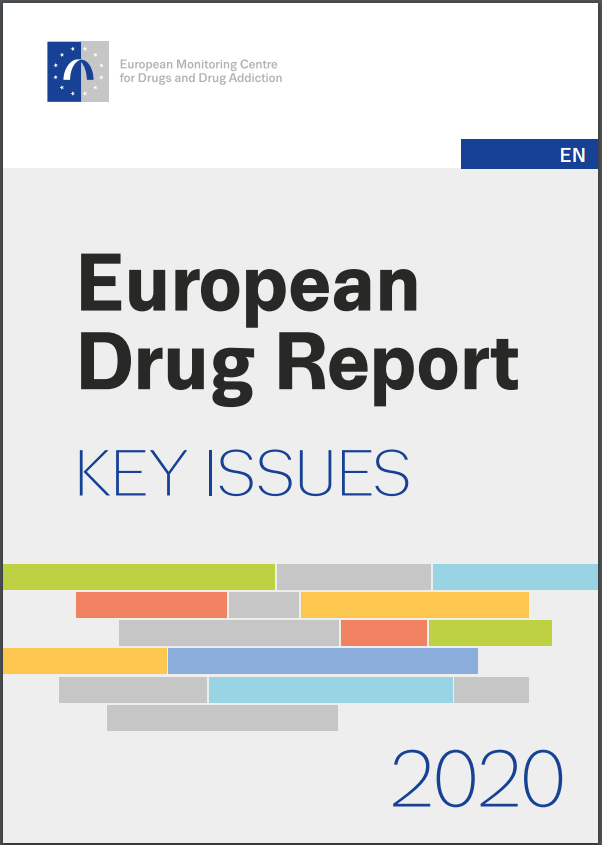
European Drug Report 2020: Key Issues
This report, available in 24 languages, presents a summary of some the main findings of the 'European Drug Report 2020: Trends and Developments the EMCDDA’s latest analysis of the drug situation in Europe. The issues selected here have been chosen for their policy relevance and general interest.
Bulgarian (bg)
Croatian (hr)
Czech (cs)
Danish (da)
Dutch (nl)
English (en)
Estonian (et) …
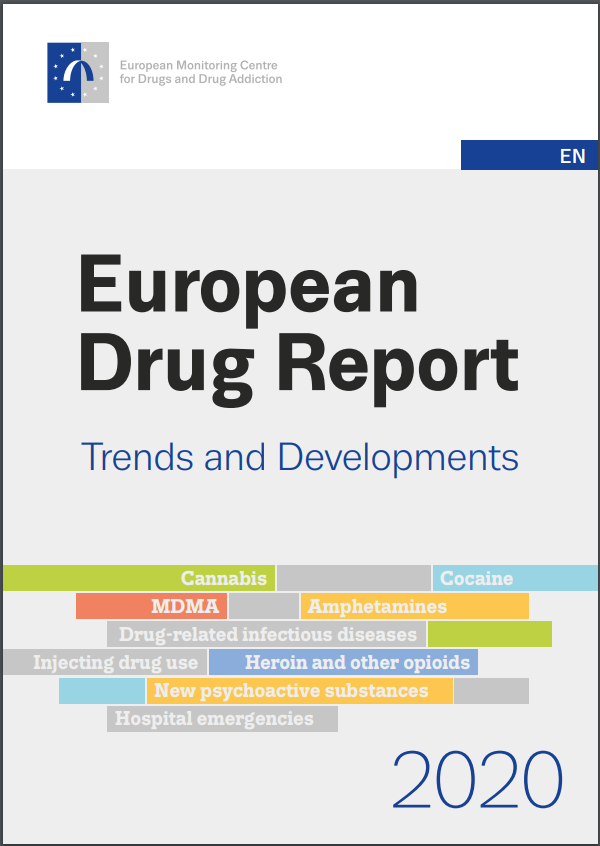
European Drug Report 2020: Trends and Developments
This report provides a comprehensive analysis of patterns emerging across Europe in the areas of drug supply, illicit drug use and associated public health problems. National data sets are also provided across these themes and on key harm-reduction interventions. The report is available in English with a summary of a selection of the main findings available in 24 languages in the accompanying Key…
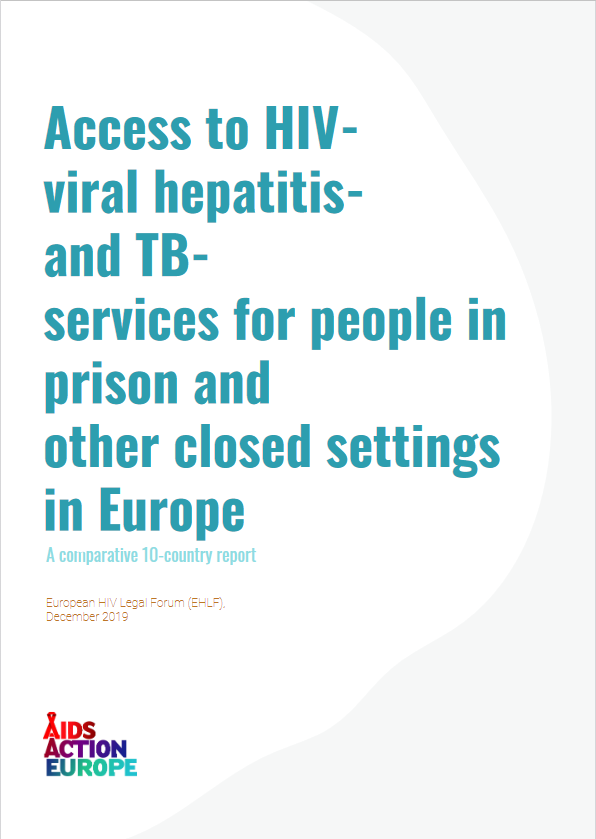
Access to HIV-, viral hepatitis-, and TB-services for people in prison and other closed settings in Europe: A comparative 10-country report
In 2018-2019 the European HIV Legal Forum conducted a project on access to HIV-, viral hepatitis-, and TB-services for people in prison and other closed settings in 10 countries (Denmark, Finland, France, Germany, Greece, Italy, North Macedonia, Spain, Ukraine, and the United Kingdom). The project produced a comparative legal report based on legal survey launched in the 10 countries. One of the…
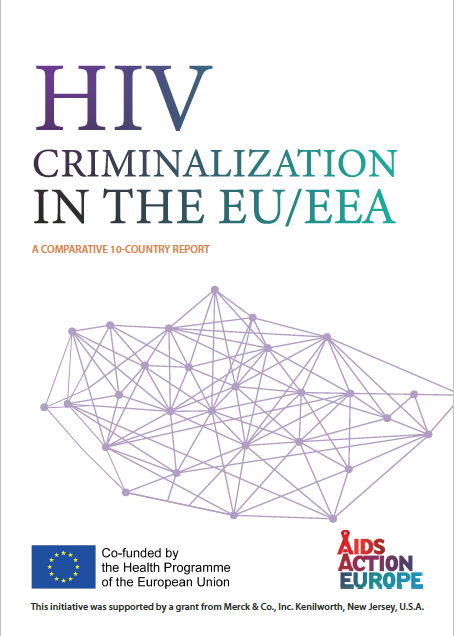
HIV Criminalisation in the EU/EEA: a comparative 10 country report
In 2018-2019 the European HIV Legal Forum conducted a project on HIV-criminalization in 10 EU Member States (Austria, Czechia, Finland, Germany, Greece, Ireland, Italy, Portugal, Romania, and the United Kingdom). The project produced a comparative legal report based on legal survey launched in the 10 countries. One of the main findings of the project showed that regardless of scientific advance…
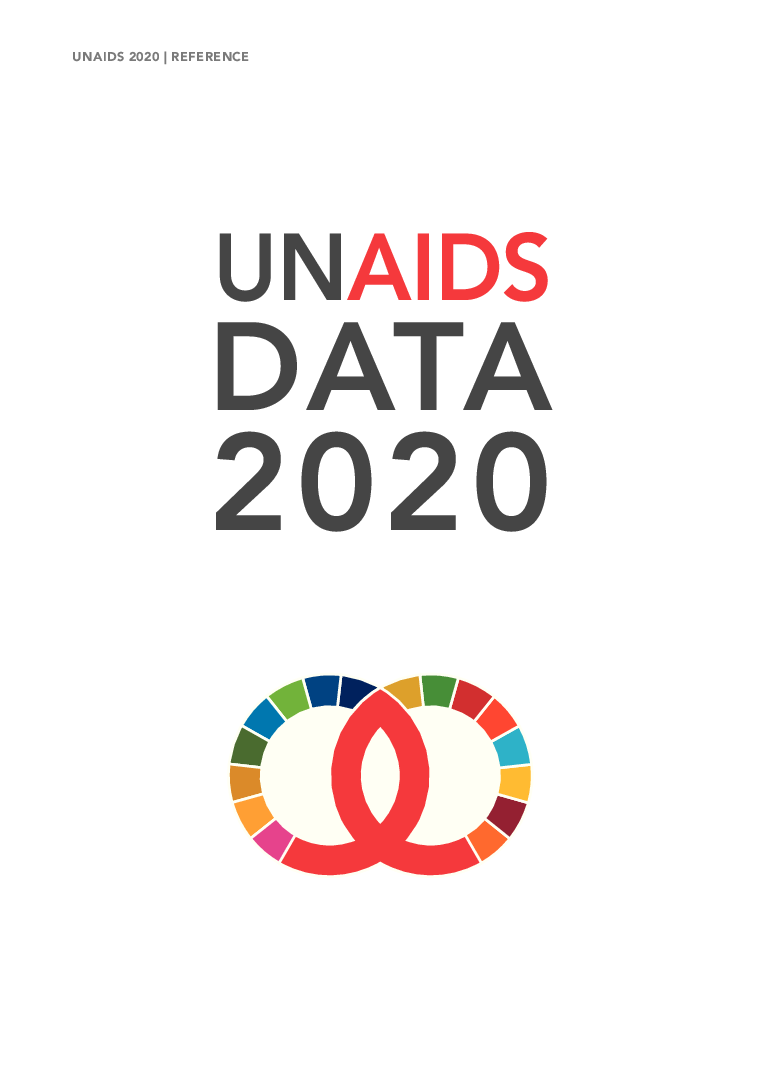
UNAIDS DATA 2020
With the end of 2020 approaching, the latest data from countries show both progress and challenges. As the complex reality of HIV epidemics is increasingly understood, more HIV responses are sharpening their ability to identify gaps and develop strategies to reach people who are being left behind. However, too few countries have taken sufficient action to reach the interim milestones, leaving the…
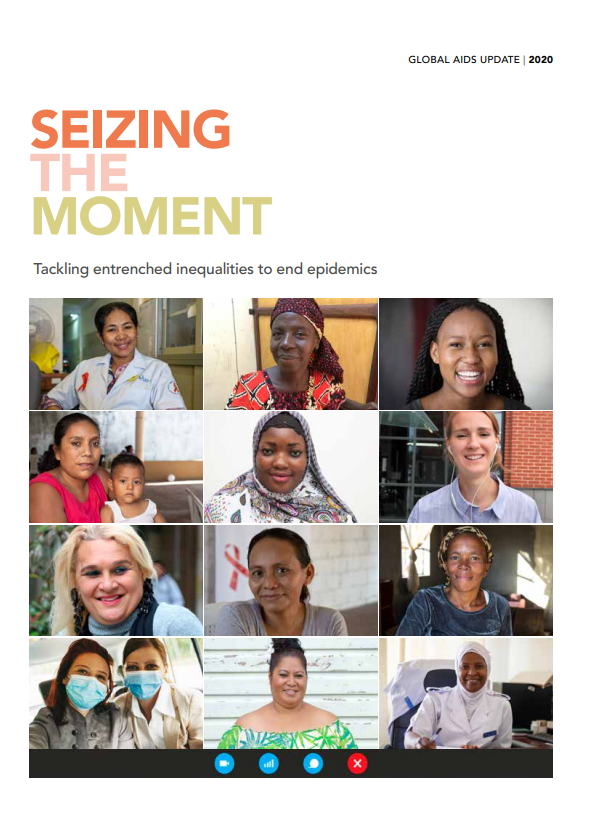
2020 Global AIDS Update — Seizing the moment — Tackling entrenched inequalities to end epidemics
UNAIDS report on the global AIDS epidemic shows that 2020 targets will not be met because of deeply unequal success; COVID-19 risks blowing HIV progress way off course. Missed targets have resulted in 3.5 million more HIV infections and 820 000 more AIDS-related deaths since 2015 than if the world was on track to meet the 2020 targets. In addition, the response could be set back further, by 10…
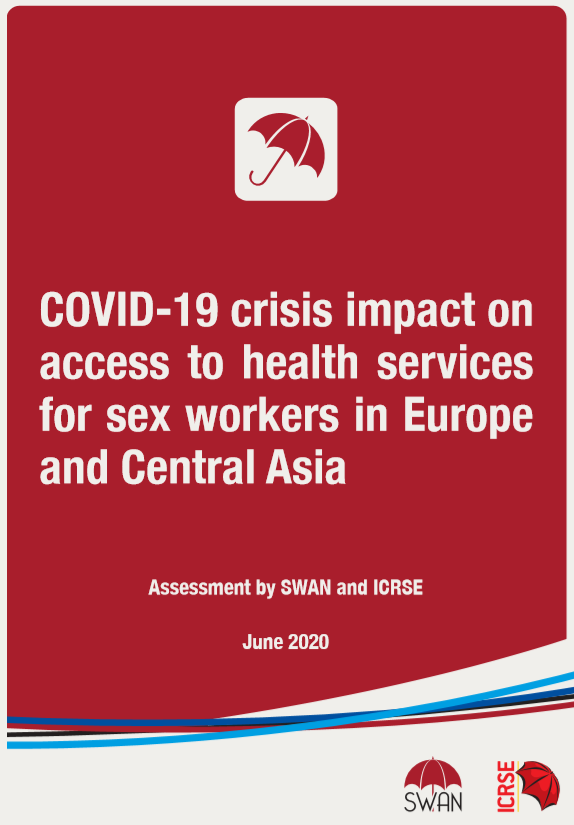
COVID-19 crisis impact on access to health services for sex workers in Europe and Central Asia
This assessment on the impact of COVID-19 on sex workers’ access to health services in Europe and Central Asia was developed by the International Committee on the Rights of Sex Workers in Europe (ICRSE) and the Sex Workers’ Rights Advocacy Network (SWAN) through consultations with their memberhips.
This resource was developed as part of a monitoring exercise to document the impact of COVID-19…
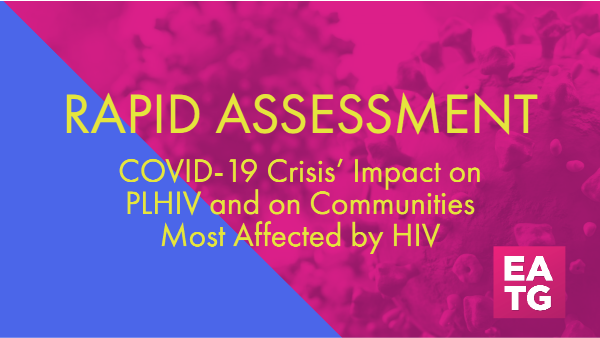
EATG Rapid Assessment: COVID-19 crisis’ Impact on PLHIV and on Communities Most Affected by HIV
This rapid assessment aims to document in a structured manner the perceptions of people living with and affected by HIV and that of organisations providing services to affected communities about the way in which COVID-19 impacts their health, well-being and access to HIV related prevention, treatment and care. This assessment has its limitations and biases (little time to develop the tool,…
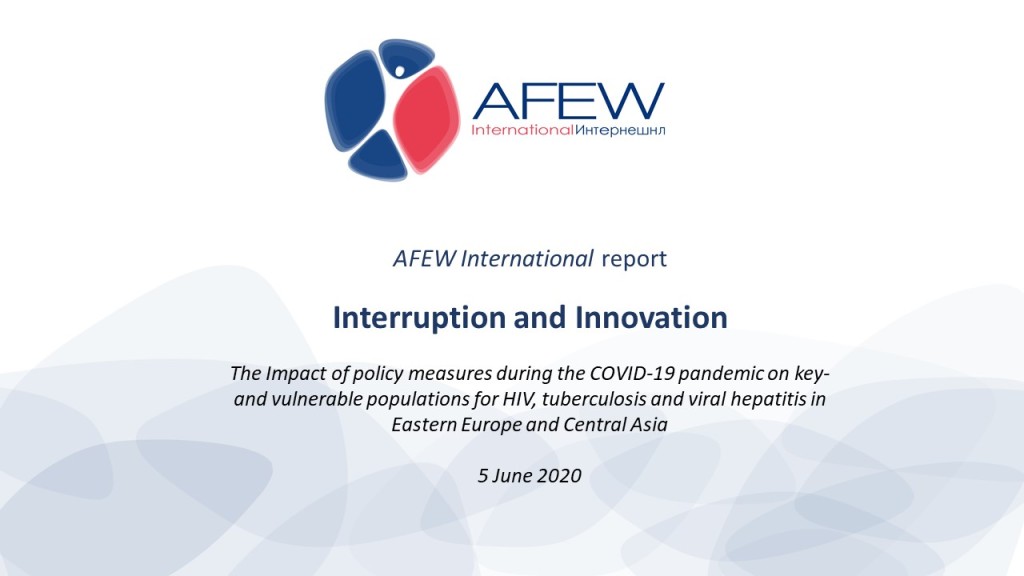
AFEW International Report "Interruption and Innovation"
AFEW International released the COVID-19 report “Interruption and Innovation” with an overview of disruptions of and responses to prevention, treatment and care for key populations at risk for HIV, TB and viral hepatitis due to Covid-19 in Eastern Europe and Central Asia.
The purpose of this document, commissioned by AFEW International, is to provide an overview of the impact of the pandemic…
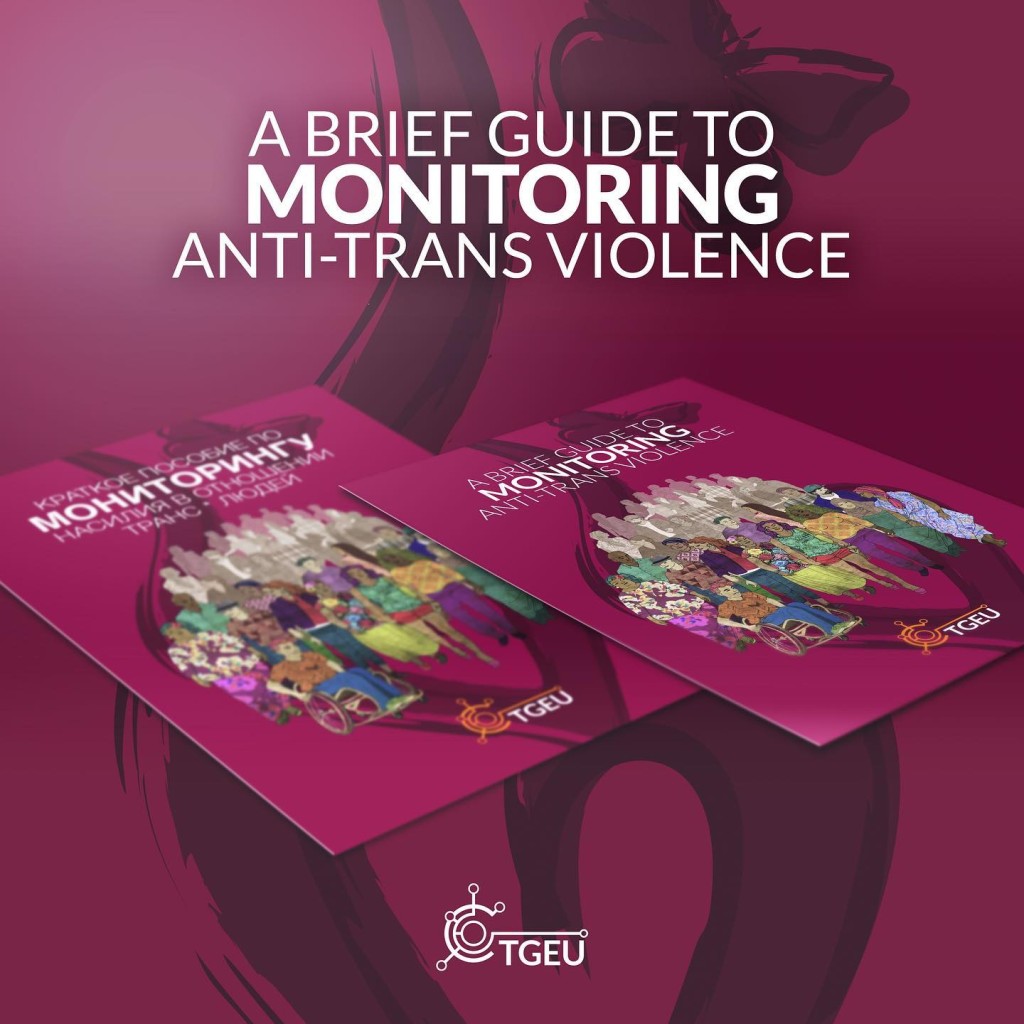
A brief guide to monitoring anti-trans violence
On this International Trans Day of Visibility (TDoV), TGEU, in collaboration with partner organisations, is publishing the booklet “A brief guide to monitoring anti-trans violence” in English and Russian.
Given the present challenging circumstances and growing concerns around COVID-19, TGEU is concerned about the human rights of trans and gender-diverse communities. This guide serves as a tool to…
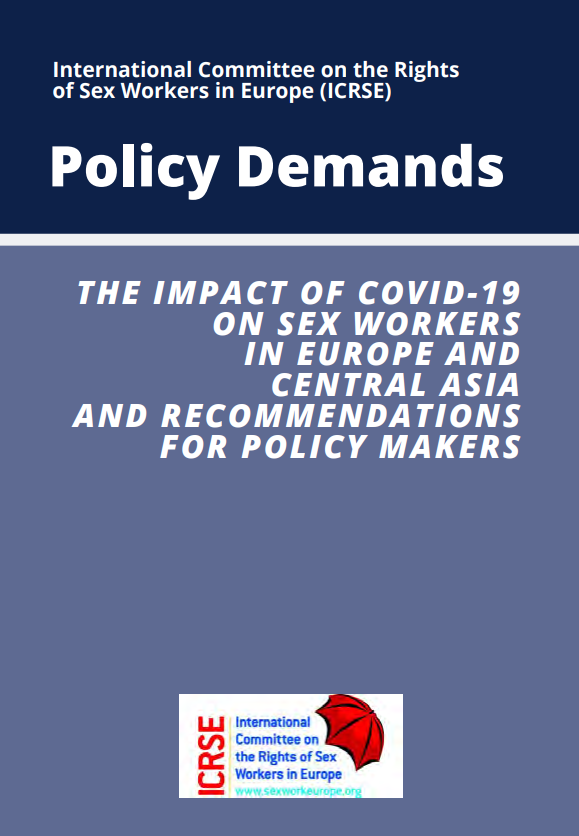
Policy Demands: The impact of COVID-19 on sex workers in Europe and Central Asia and recommendations for Policy Makers
The International Committee on the Rights of Sex Workers in Europe (ICRSE), a network of more than 100 organisations supporting sex workers has published its demands to European institutions and national governments, including emergency income replacement, a moratorium on fines, arrests and prosecution related to sex work and immigration status, access to health care for all and regularisation of…
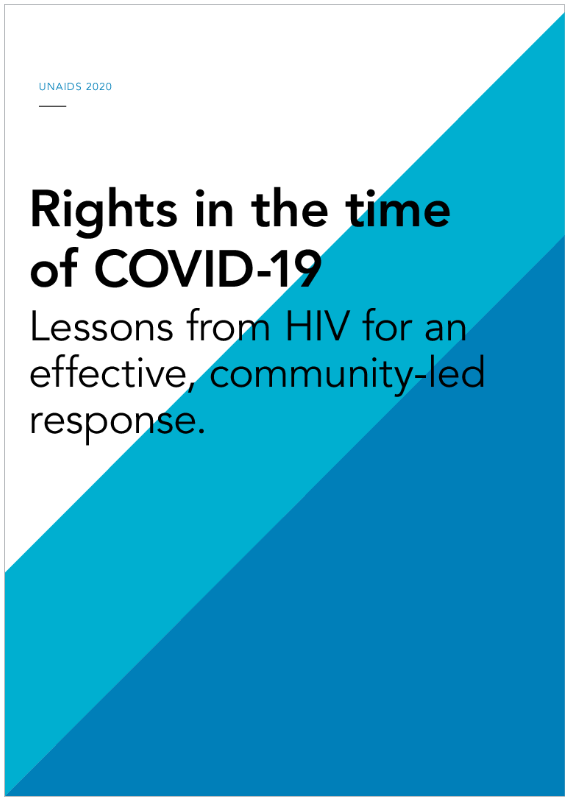
Rights in the time of COVID-19 — Lessons from HIV for an effective, community-led response
We are facing an unpredictable and highly dynamic situation as a global community. However, as we have seen from the solidarity, support and power of communities in the HIV epidemic and already in communities responding to the COVID-19 pandemic, the response must not be fear and stigma.
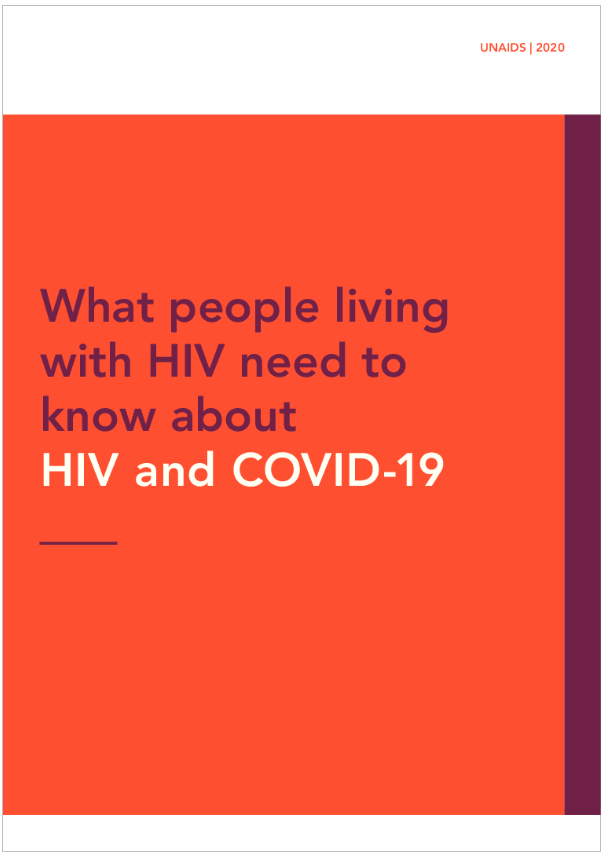
What people living with HIV need to know about HIV and COVID-19
COVID-19 is a serious disease and all people living with HIV should take all recommended preventive measures to minimize exposure to, and prevent infection by, the virus that causes COVID-19. As in the general population, older people living with HIV or people living with HIV with heart or lung problems may be at a higher risk of becoming infected with the virus and of suffering more serious…
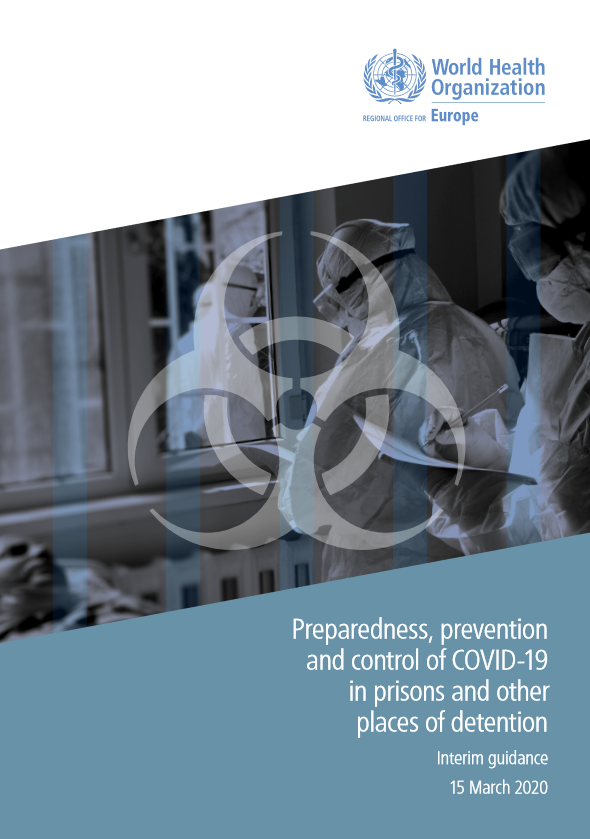
Preparedness, preventionand control of COVID-19 in prisons and other places of detention
The guidance provides useful information to staff and health care providers working in prisons, and to prison authorities. It explains how to prevent and address a potential disease outbreak and stresses important human rights elements that must be respected in the response to COVID-19 in prisons and other places of detention. Access to information and adequate health care provision, including…
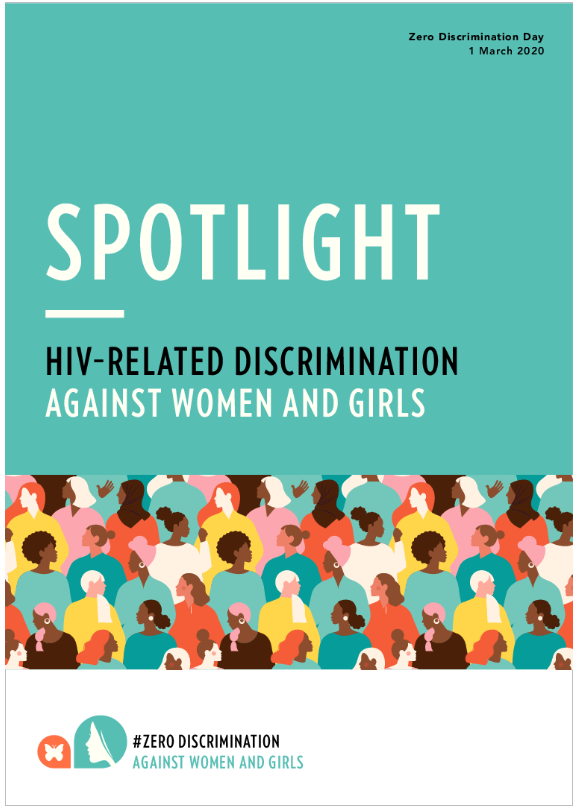
Spotlight: HIV–related discrimination against women and girls
Across the world, gender inequality, violence, poverty and insecurity continue to stoke excessive HIV risk among women and girls, especially those in marginalized and excluded communities.
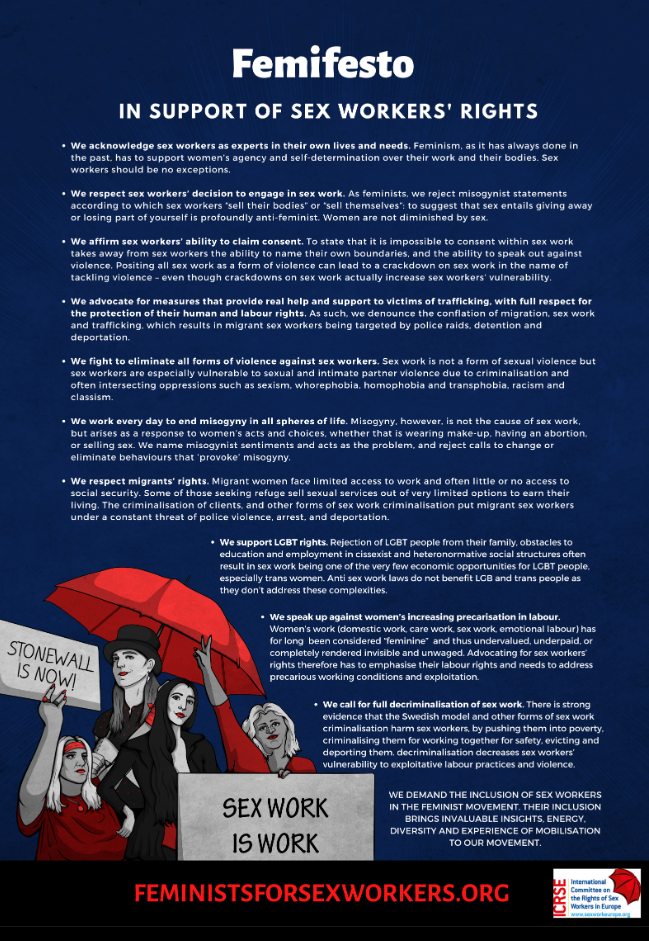
Femifesto in Support of Sex Workers’ Rights
The signatories of this online manifesto, who are women’s rights, feminist, and sex workers’ rights organisations and collectives, express support for sex workers’ self-determination and the recognition of sex work as work. With women’s rights, reproductive rights and gender equality threatened across Europe and Central-Asia, the signatories are in solidarity with sex workers, who face myriad…
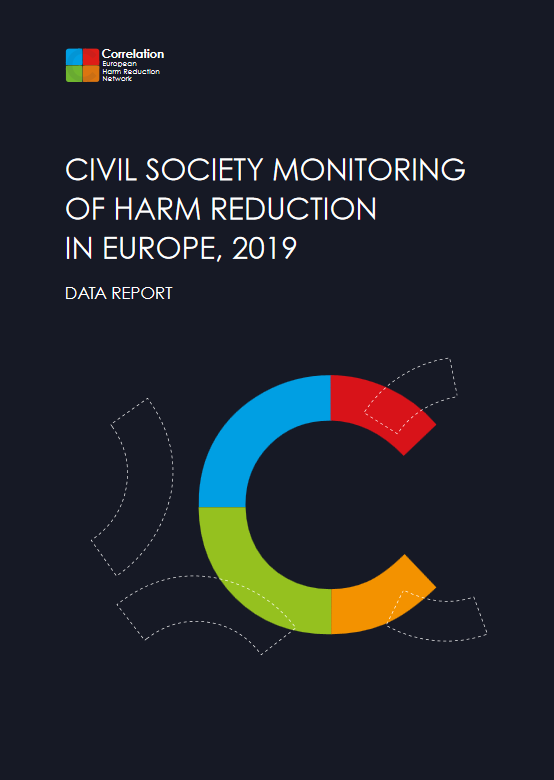
Civil Society Monitoring of Harm Reduction in Europe, 2019
This monitoring report covers certain areas of drug policy and practice produced by Correlation – European Harm Reduction Network (C-EHRN). The purpose of this report is to enrich the information and knowledge base of harm reduction interventions in Europe from the viewpoint of civil society organisations, meaning organisations that directly work for, and with, people who use drugs. We believe…
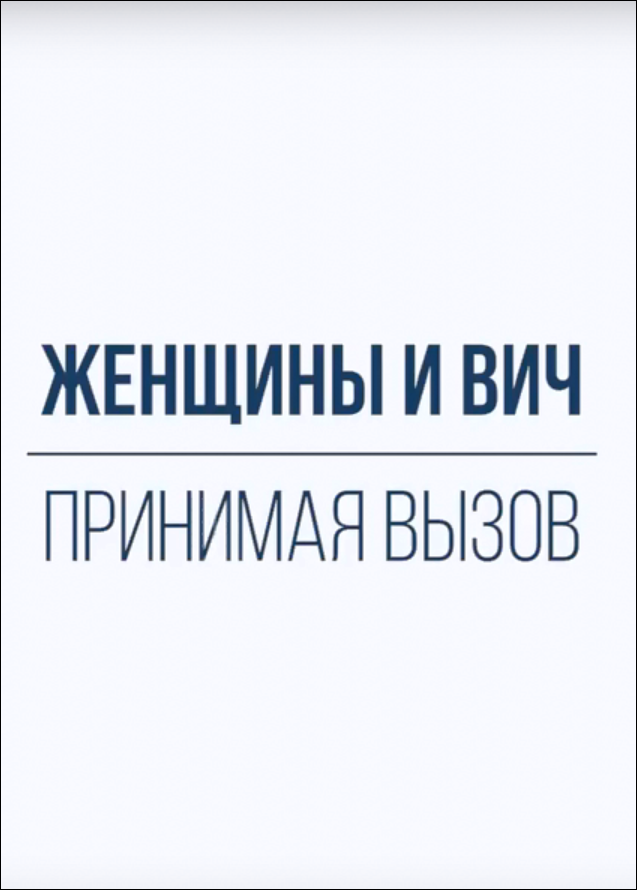
Women and HIV. Accepting the Challenge (video)
The Conference “Empowering Women Living with HIV in Eastern Europe” took place on November 22-24, 2019 in Minsk, Belarus. The conference in Minsk gave the participants a feeling of strength and inspiration, support and sisterhood, love and self-confidence. The conference was organized and conducted by Deutsche Aidshilfe (German Association of HIV Service Organizations), as part of the German…
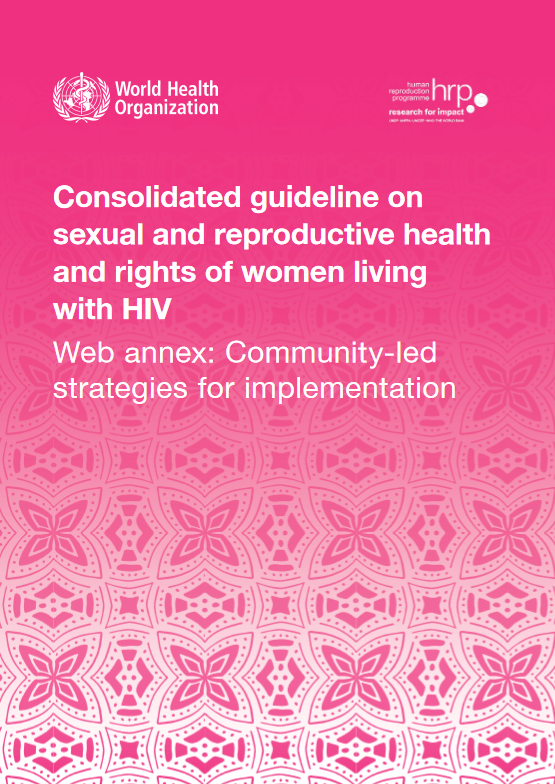
Consolidated Guideline on the sexual and reproductive health and rights of women living with HIV
This document celebrates the wealth of fierce activism around our sexual and reproductive health and rights led by inspiring women living with HIV who are cracking the whip for the changes we want, which are long overdue. This work is characterized by being poorly funded, unrecognized and rarely documented in peer-reviewed journals.
This guideline is meant to help countries to more effectively…
